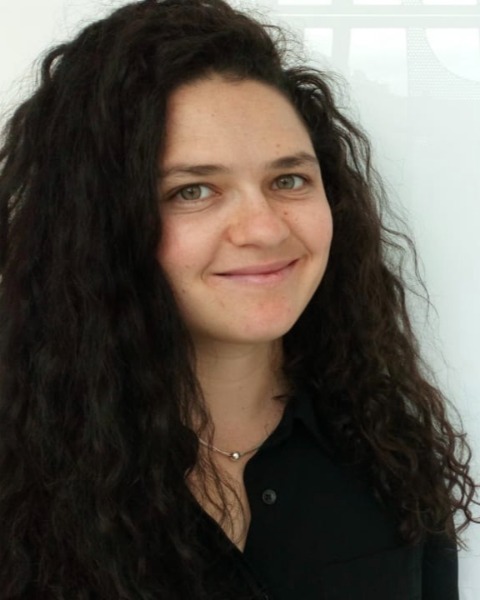Dissemination & Implementation Science
Symposium 76 - Increasing Access to Evidence-Based Behavioral Health Services through Task-Shifting Approaches and the Expansion of Services Across Settings
Level of Familiarity: Basic to moderate
Recommended Readings: Barnett, M. L., Gonzalez, A., Miranda, J., Chavira, D. A., & Lau, A. S. (2018). Mobilizing Community Health Workers to Address Mental Health Disparities for Underserved Populations: A Systematic Review. Administration and policy in mental health, 45(2), 195–211. https://doi.org/10.1007/s10488-017-0815-0,
Reardon, T., Harvey, K., Baranowska, M., O'Brien, D., Smith, L., & Creswell, C. (2017). What do parents perceive are the barriers and facilitators to accessing psychological treatment for mental health problems in children and adolescents? A systematic review of qualitative and quantitative studies. European child & adolescent psychiatry, 26(6), 623–647. https://doi.org/10.1007/s00787-016-0930-6
,Schriger, S. H., Knowles, M., Daglieri, T., Kangovi, S., & Beidas, R. S. (2024, March). Barriers and Facilitators to Implementing an Evidence-Based Community Health Worker Model. In JAMA Health Forum (Vol. 5, No. 3, pp. e240034-e240034). American Medical Association.
,Wolk, C. B., Arnold, K. T., & Proctor, E. K. (2022). Implementing evidence-based practices in nonspecialty mental health settings. Families, Systems, & Health, 40(2), 274–282. https://doi.org/10.1037/fsh0000506
,-

Brigid Marriott, Ph.D. (she/her/hers)
Indiana University School of Medicine
Indianapolis, Indiana, United States -

Kelsie Okamura, Ph.D. (she/her/hers)
Implementation Researcher
The Baker Center for Children and Families
Boston, Massachusetts, United States -
JJ
Jesslyn Jamison, Ph.D. (she/her/hers)
Postdoctoral Fellow
Penn Center for Mental Health
Philadelphia, Pennsylvania, United States -
AO
Averill Obee, M.S. (she/her/hers)
Graduate Student
Florida International University
Miami, Florida, United States -

Brigid Marriott, Ph.D. (she/her/hers)
Indiana University School of Medicine
Indianapolis, Indiana, United States -

Simone Schriger, M.A. (she/her/hers)
Doctoral Candidate
University of Pennsylvania
Philadelphia, Pennsylvania, United States -
KC
Katherine Cohen, M.A. (she/her/hers)
PhD Student
Northwestern University Feinberg School of Medicine
Chicago, Illinois, United States
Chair(s)
Discussant(s)
Presenter(s)
Roughly half of youth and adults with a mental health disorder did not receive mental health services in the past year (Whitney et al., 2019; SAMHSA, 2022). Access to and engagement in behavioral health services is impeded by numerous barriers including cost, location, stigma, and a shortage of behavioral health providers (e.g., Reardon et al., 2017). Thus, there is a need for innovative approaches to reduce these barriers and expand access to services. One promising approach is task-shifting, or shifting the delivery of services from specialists to non-specialists. Previous studies have found positive outcomes from psychological treatments delivered by non-specialist providers (e.g., Barnett et al., 2018). Access to care may be further increased by expanding the settings in which behavioral health services are provided, such as integrating behavioral health services within schools and primary care clinics. However, a better understanding of the common barriers and facilitators to effectively implementing task-shifting models and expanding behavioral health services to additional settings is needed. The present symposium includes five studies focused on addressing these gaps and examining innovative approaches for increasing access to care, including a model for increasing engagement in services, models for task-shifting the delivery of behavioral health services to non-specialists, and the expansion of services across settings.
This symposium aligns with ABCT’s mission of addressing human suffering through the application of CBT principles for diverse populations. Presenters span a range of professional roles (graduate student, postdoctoral fellow, early career faculty) and settings (academic health center, university, non-profit organization). Presenters will share studies that include diverse populations, including a range of racial/ethnic identities, ages, and educational attainment, and settings, including mental health clinics, schools, hospital settings, and primary care. Our first presentation will discuss challenges to engaging in care and perceptions of a caregiver peer model for navigating the mental health system from interviews conducted with caregivers of anxious youth who did not attend their initial appointment. Second, counselors’ and teachers’ perspectives on how to improve Summer Treatment Program training, supervision, and supports will be presented. Next, a mixed methods implementation determinant assessment of primary care team members’ perspectives on delivering an adapted pediatric integrated care model, that includes task-shifting the delivery of a brief CBT intervention, will be shared. Our fourth presentation will share barriers and facilitators to implementing an evidence-based community health worker program and implications for mental health care. Finally, the fifth presentation will discuss the development of a digital, self-administered tool that can be used by school mental health providers to improve CBT implementation in schools. The discussant will discuss the implications of these studies and the approaches described for expanding access to and increasing engagement in behavioral health services.
Learning Objectives:
- Describe task-shifting and how it could expand access to behavioral health services.
- Describe common and unique themes in caregiver perceptions of family peer support for pediatric anxiety by insurance status.
- Identify barriers and facilitators to expanding behavioral health services beyond outpatient mental health settings.
- Describe the utility of single session strategies for addressing implementation barriers among school mental health providers delivering CBT.
- Identify key factors to promote the learning and support of preprofessional mental health counselors delivering an intensive intervention.
- Identify common barriers and facilitators to implementing community health worker programs.
Presentations:
-
10:30 AM - 12:00 PM EST(SYM 76) Caregiver Perceptions of the Acceptability and Utility of a Pediatric Anxiety Specific Family Peer Program by Insurance Status
Speaker: Jesslyn Jamison, Ph.D. (she/her/hers) – Penn Center for Mental Health
Co-author: Michal Weiss, B.S. – Perelman School of Medicine at the University of Pennsylvania
Co-author: Sophia Young, None – University of Pennsylvania School of Medicine
Co-author: Megan Brady, B.S. – University of Pennsylvania School of Medicine
Co-author: Danielle R. Adams, PhD – University of Washington, St. Louis
Co-author: Crystal Karenchak, Family Policy and Engagement Consultant and Family Lead Contact – Pennsylvania care Partnership
Co-author: Wanda Cummings, FPSS Training Coordinator – UPMC Western Psychiatric Hospital Youth and Family Training Institute
Co-author: Emily Becker-Haimes, Ph.D. (she/her/hers) – University of Pennsylvania
-
10:30 AM - 12:00 PM EST(SYM 76) Training, Supervising, and Supporting Summer Treatment Program Preprofessional Staff: Staff Perspectives on Essential Ingredients
Speaker: Averill Obee, M.S. (she/her/hers) – Florida International University
Co-author: Averill Obee, M.S. (she/her/hers) – Florida International University
Co-author: Geraldine D. Cadet, B.A. – Florida International University
Co-author: Maria Morales, M.a. – Florida International University
Co-author: Elsa Bravo, Ph.D. – Florida International University
Co-author: Katie C. Hart, Ph.D. (she/her/hers) – Florida International University
-
10:30 AM - 12:00 PM EST(SYM 76) Implementation of an Adapted Pediatric Integrated Behavioral Health Model in Primary Care Clinics: Identifying Pre-implementation Barriers and Facilitators
Speaker: Brigid Marriott, Ph.D. (she/her/hers) – Indiana University School of Medicine
Co-author: Johnathan Oliver, MS – Indiana University School of Medicine
Co-author: Cara Jones, MPA – Indiana University Health
Co-author: Zachary Adams, Ph.D. – Indiana University
Co-author: Leslie Hulvershorn, M.D. – Indiana University
Co-author: Matthew Aalsma, Ph.D. – Indiana University
-
10:30 AM - 12:00 PM EST(SYM 76) Barriers and Facilitators to Implementing an Evidence-based Community Health Worker Model and Implications for Mental Health Care
Speaker: Simone Schriger, M.A. (she/her/hers) – University of Pennsylvania
Co-author: Molly Knowles, MPH (she/her/hers) – University of Pennsylvania
Co-author: Talia Daglieri, MSW (she/her/hers) – University of Pennsylvania
Co-author: Shreya Kangovi, MD, MS (she/her/hers) – IMPaCT Care
Co-author: Rinad Beidas, Ph.D. (she/her/hers) – Northwestern University Feinberg School of Medicine
-
10:30 AM - 12:00 PM EST(SYM 76) Designing a Single-session Strategy (S3) for School-based Mental Health Providers Delivering CBT
Speaker: Katherine Cohen, M.A. (she/her/hers) – Northwestern University Feinberg School of Medicine
Co-author: Natalie Rodriguez-Quintana, M.P.H., Ph.D. (she/her/hers) – TRAILS
Co-author: Emily Bilek, ABPP, Ph.D. – University of Michigan
Co-author: Jacqueline Howard, B.A. – TRAILS, a project of Tides Center
Co-author: Jessica L. Schleider, Ph.D. (she/her/hers) – Northwestern University

.png)
